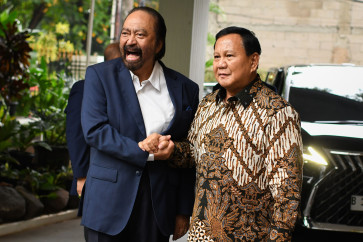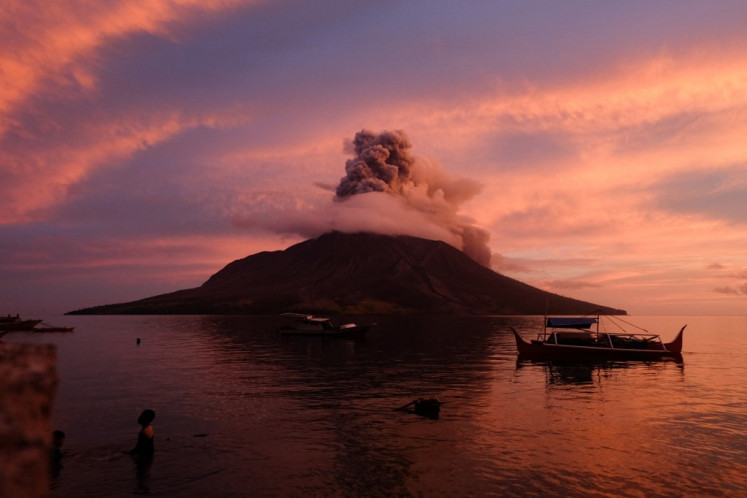Indonesia to file US biodiesel duty case with WTO
The government is preparing to file an objection to the United States’ decision to impose anti-dumping duties on Indonesian biodiesel with the World Trade Organization (WTO) after the US decided to increase the duties, one to a record high of 276
Change Size

T
he government is preparing to file an objection to the United States’ decision to impose anti-dumping duties on Indonesian biodiesel with the World Trade Organization (WTO) after the US decided to increase the duties, one to a record high of 276.65 percent.
Fifteen US biodiesel producers grouped under the National Biodiesel Board (NBB) Fair Trade Coalition lodged an anti dumping petition in March 2017.
Since then, the US Commerce Department has been imposing and changing dumping rates for palm oil-based biodiesel from Indonesia and soybean-based biodiesel from Argentina.
The department decided on Wednesday to increase the rate based on the US International Trade Commission’s finding that its domestic biodiesel business was harmed by Indonesian biofuel sold at prices it deemed unfair.
The duty imposed on PT Musim Mas was raised to 276.65 percent because of a “failure to provide certain information” while on Wilmar Trading PTE Ltd and other Indonesian producers and exporters the duty was set at 92.52 percent, a statement from the department said.
With combined rates of up to 341 percent on Indonesian fuel varieties, it is virtually impossible for the commodity to enter the world’s largest energy market.
The US is Indonesia’s biggest market for biodiesel. In 2016, the trade was valued at US$255.56 million, 89.19 percent of Indonesian biodiesel exports, Trade Ministry data shows.
The chairman of Indonesia’s Biofuel Producers Association (Aprobi), Paulus Tjakrawan, said the group and government had taken their objection to a US court on Feb. 4 and would proceed to the WTO soon.
“Industry players and the government are coordinating to face this. We’ve brought this to a local US court and the administration is preparing to report the case to the WTO but the date is still to be confirmed,” he said in a text message.
He added that there was no government subsidy for biodiesel production.
Indonesia does have the Oil Palm Estate Fund (BPDP-KS), which collects palm oil export levies to cover the domestic price difference between crude palm oil (CPO) — as the basic material in producing biodiesel — and crude oil, the main component of conventional diesel.
“The BPDP-KS fund comes from exporters, not from the government, meaning there’s no subsidy. Moreover, the fund is used for biodiesel sold here and not for export so there’s no relation to the US,” he said.
“The government and businesspeople will fight this in the local [US] court and the WTO,” said Trade Ministry director general of foreign trade Oke Nurwan, without elaborating on the submission date.
Supporting the government’s move to file the case with the WTO, Center of Reform on Economics (CORE) Indonesia executive director Mohammad Faisal said the US could lose the case if it failed to prove one of three WTO stipulations, that dumping occurred through unfair pricing, that US domestic business was harmed or to show that the dumping was what caused the harm, or the “cause and effect” principle.
“Developed countries really have to prove [the decision to impose duties] at the WTO because they’re the ones who push for free trade worldwide, while in many cases they impose high duties on cheap imports from developing countries,” he told The Jakarta Post.
Last month, Indonesia won at the WTO over biodiesel-dumping accusations from the European Union, which had imposed higher duties since 2013, causing Indonesian exports to the bloc to plunge by 42.84 percent to $150 million in 2016 from $649 million in 2013.
The WTO accepted six of Indonesia’s protests regarding the biodiesel dispute with the EU, instructing the bloc to bring its measures into conformity with WTO agreements.
Indonesia, the world’s biggest palm oil producer, has often faced various accusations from importing countries about its palm oil products.









